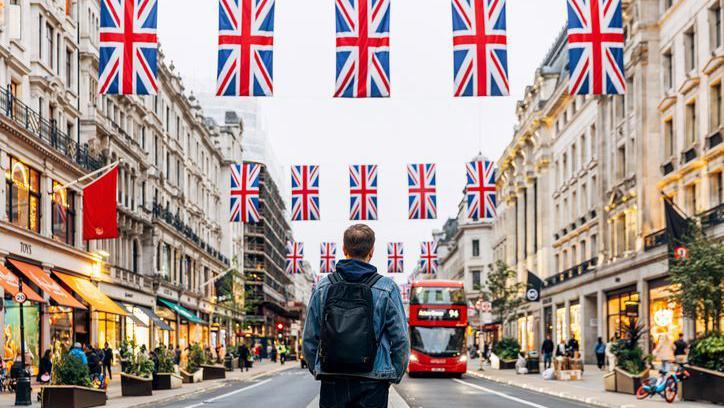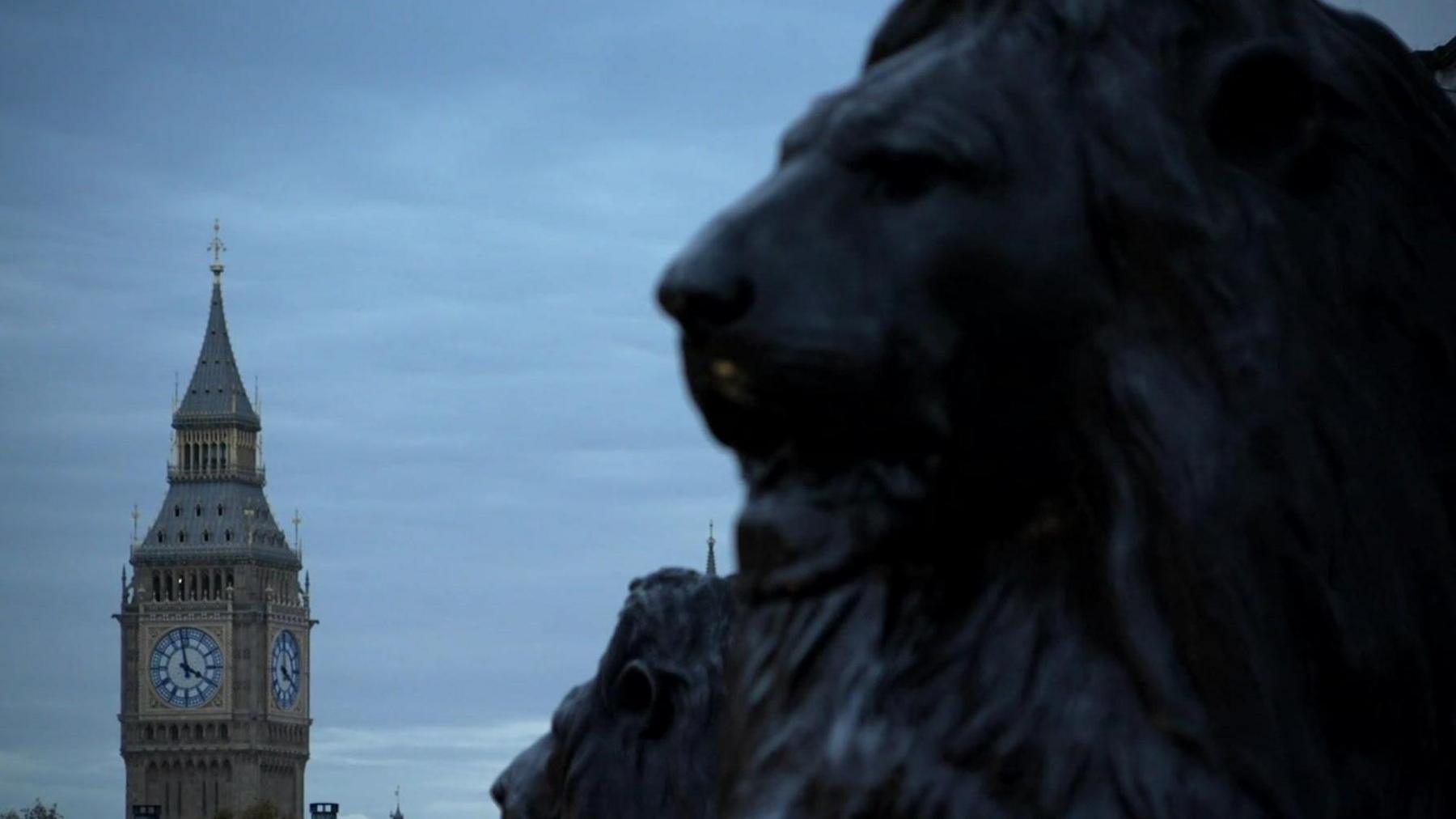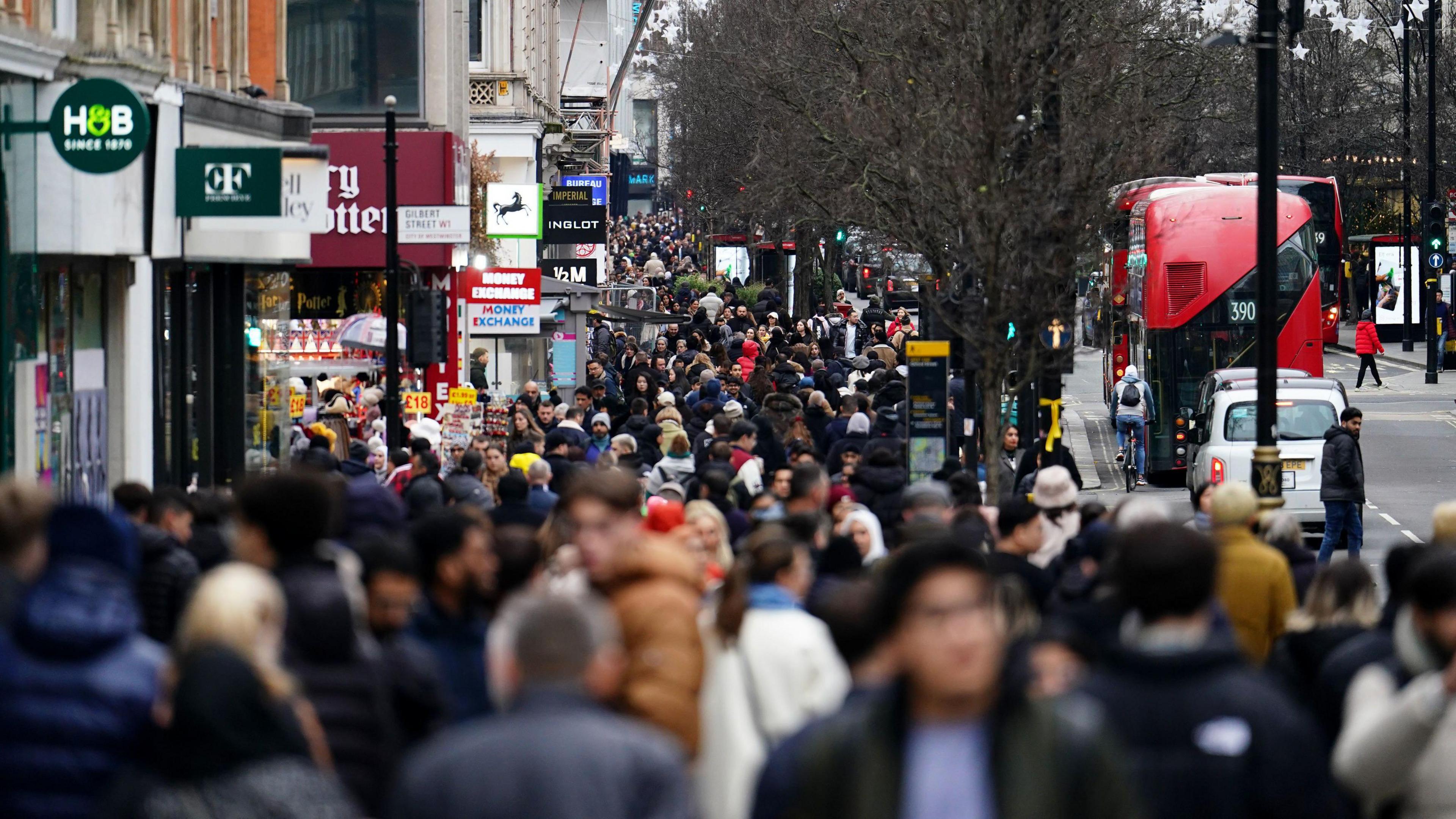Tourist tax expected to be introduced for London

Estimates suggest a tourist tax in London could raise up to £240m a year
- Published
The mayor of London has cautiously welcomed reports that he is to impose a tourist levy on visitors staying overnight in the capital.
Chancellor Rachel Reeves is expected to give Sir Sadiq Khan and other civic chiefs the authority to do so through the English Devolution and Community Empowerment Bill, which is currently going through Parliament.
Sir Sadiq has been vocal in calling for such powers to be devolved, with estimates suggesting a tourist tax in London could raise up to £240m a year.
In 2024, London saw 89 million overnight stays.
Currently England is the only country among the G7 (Group of Seven) - the world's seven largest so-called "advanced" economies - where national government prevents local authorities or mayors from implementing tourist levies.
Scotland and Wales have both recently introduced different types of taxes on overnight visitors, with local authorities in the former able to set their own levy as a percentage rate of the daily bill for accommodation.
From 2026, Welsh authorities will be able to collect £1.30 per night from visitors.
How would it work in London?
The Greater London Authority (GLA) recently asked the Centre for Cities thinktank to probe promising areas for further devolution in the capital.
In a briefing released last week, the authors noted that three types of tourist levy exist across the G7 primary cities – Paris, Munich, Milan, Toronto, New York, and Tokyo.
New York City and Toronto impose percentage rate levies on stays, with the former raising £493m every year with a £14.86 average nightly rate per visitor.
Tokyo has a single flat fee for all bookings, which raises just £35m despite the Japanese capital having the highest number of overnight stays of any primary city.
In France and Italy, the amount paid depends on the location, type of accommodation and official "star rating".
London would be more suited to either a percentage or flat fee system, the authors suggested, as Britain "lacks a statutory national 'star' system for hotels present in France and Italy".
The GLA previously estimated in 2017 that a £1 a day levy, including international visitors, could raise £91m, and that a 5% levy could raise £240m.
The Centre for Cities briefing also concluded that "London is unlikely to see a significant drop in visitors if it introduces a levy at a rate comparable to peer primary cities".
This is due to research showing that visitors are less sensitive to levies in more popular destinations.
Would London benefit?
The Centre for Cities suggests that, if implemented effectively, a tourist levy would boost both economic growth and improve infrastructure and the business environment in London.
The mayor having control over the tax rate and use of revenues would also allow them to reduce or increase rates more swiftly in response to visitor patterns, it reported. It cites Toronto increasing theirs ahead of next year's World Cup in North America.
Andrew Carter, chief executive of Centre for Cities, said: "The model the government should adopt is already under way in Scotland, where Edinburgh, Glasgow and Aberdeen are introducing levies valued at a percentage rate on overnight stays in hotels, B&Bs and short-let accommodation."
Where will a tourist tax be introduced in Scotland?
- Published2 October
Tourist tax considered for those staying in London
- Published15 November 2024
Southwark Council backs call for London tourist tax
- Published19 July
He said a "key benefit" of that approach was that it was "flexible", and the rate could rise and fall depending on the demand for overnight stays.
"A tourist levy would benefit the capital's tourist economy, provided the revenues go to local government – ideally split between City Hall and the boroughs – and are not ring-fenced by central government for specific purposes," Mr Carter added.
"Hopefully, introducing a tourist levy is the start of a bigger programme of devolving tax and spending powers to the capital. London is the most productive big city in the UK, and devolving more fiscal powers would give the capital more policy tools to accelerate growth in the economy."
What does the hospitality sector think?
Kate Nicholls, chair of UK Hospitality, the trade body for the hospitality industry, called the idea "shocking".
She said: "Overseas visitors are incredibly important to central London but across London as a whole, this is builders coming to work, businesses coming to conferences, it's families coming for concerts and theatres and going to see family and friends.
"This will have a really big impact on British consumers, it's a tax on hardworking British families having a short break in London and it will deter visitors from coming in."
She added: "VAT rate in England and Wales and Scotland is 20% and that is really significant - it's a tax on a tax.
"Our customers are already paying the highest tax. Customers can vote with their feet, if we tax them out of coming to London, then we will tax the London economy out of jobs, growth and investment."
Would London's boroughs support it?
Westminster, which is home to many of the capital's famous landmarks including Big Ben and the Houses of Parliament and Buckingham Palace, has been campaigning for an overnight stay levy for "many many years", its council leader said.
Adam Hug said: "We have a daytime population of over a million compared to a night-time population of about 200,000 and that means our local council tax payers are helping to subsidise things for the rest of London.
"So something through an overnight stay levy that helps redress that balance would be enormously welcome and enable us to do more creative things in the future."
The Labour councillor added: "There are huge pressures at the moment both on local councils and the government, so this small measure is unlikely to significantly affect consumer behaviour but what it would do is give local councils an important revenue stream to support the local economy."
Other councils, including Southwark and Brent, have also been in support of introducing such a levy.
What does Sir Sadiq think?
The mayor's office appeared to welcome the proposed changes but said they would not comment on "speculation" and would wait before making any concrete preparations.
A spokesperson for the mayor of London told the Local Democracy Reporting Service (LDRS): "The mayor has been clear that a modest tourist levy, similar to other international cities, would boost our economy, deliver growth and help cement London's reputation as a global tourism and business destination."
What's next?
While the chancellor is widely expected to announce the move in the coming months, nothing has yet been formalised.
A Ministry of Housing, Communities and Local Government spokesperson told the LDRS: "We are always open to hearing views from local leaders on issues like this.
"Places can already choose to introduce a levy on overnight stays through the Accommodation Business Improvement District (ABID) model."
Richmond Council is looking into creating an ABID for the borough, which is home to attractions such as Hampton Court Palace and Kew Gardens. It is understood that if a London-wide tourist levy was introduced, any existing local schemes would likely be scrapped.
Listen to the best of BBC Radio London on Sounds and follow BBC London on Facebook, external, X, external and Instagram, external. Send your story ideas to hello.bbclondon@bbc.co.uk, external
Related topics
More on politics in London
- Published6 days ago

- Published2 days ago

- Published7 days ago
